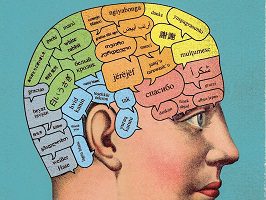Psycholinguistics
Psycholinguistics
Psycholinguistics is the study of the mental processes involved in the language, and the cognitive and neurological mechanisms underlying these processes. Psycholinguistics examines the relationship between language and the mind, including language processing, language acquisition, and language disorders. In Eglopedia.com, the readers can easily find the articles of Psycholinguistics and Neurolinguistics.
Through Englopedia.com, you can answer every question arise in the field of Psycholinguistics and Neurolinguistics. It will updated you that Neurolinguistics is the study of the neurological basis of language processing and production. It examines the neural mechanisms involved in language comprehension, production, and acquisition, as well as the neural basis of language disorders. Neurolinguistics combines methods and principles from linguistics, psychology, neuroscience, and other fields to investigate the brain basis of language and how it is organized and processed.
Both psycholinguistics and neurolinguistics are interdisciplinary fields that draw on a range of research methods and techniques, including behavioral experiments, brain imaging (such as fMRI and EEG), and computational modeling. Together, these fields help us to understand the complex cognitive and neural processes involved in language use, acquisition, and processing. They also have important applications in areas such as language teaching, language therapy, and the development of artificial intelligence systems that can process and understand human language.
If both Psycholinguistics and Neurolinguistics confuse you a lot then no need to worry and just type Englopedia.com and eliminate your tension. We are always be there for your service of knowledge.
-

Types of Speech Disorders
What are speech disorders? Communication is essential for the development of the human being. And a large part of our communicative…
Read More » -

The 4 stages of language development with explanation
List of stages of language development The main stages of language evolution on the following: 1. The preverbal or prelinguistic…
Read More » -

What is psycholinguistics in linguistics?
Psycholinguistics. One of the characteristics that most differentiates human beings from other species is language, thanks to which human beings…
Read More » -

Functionalist theory John Dewey Origin contrast with structuralism
There are many theories and approaches existing in psychology. Throughout history, different ways of seeing and studying the human mind have…
Read More » -

Different Types of memory phases Classification How to store
What we generally know as memory (remember something) is usually a general concept, because we often talk about long-term memory . In this…
Read More » -

Difference between psychology and neuropsychology
Psychology is the science responsible for studying and intervening in people’s cognitive, affective and behavioral processes. In this article we…
Read More » -

Extended mind theory psyche beyond the brain
It is well known that the term “mind” refers to the set of cognitive processes, that is, to consciousness, thinking,…
Read More » -

Types of disability definition 6 types and their characteristics
Each of us is unique, has different characteristics and lives a different life than everyone else. However, most of us have…
Read More » -

How to control anxiety 6 steps to overcome
Anxiety is behind many of the unpleasant experiences we live on a daily basis. The fear of public speaking, the fear…
Read More » -
What is Analytical thinking characteristics functions and examples
Analytical thinking is reasonable, reflective thinking about a problem that focuses on deciding what to do or what to believe and the relationship between…
Read More »